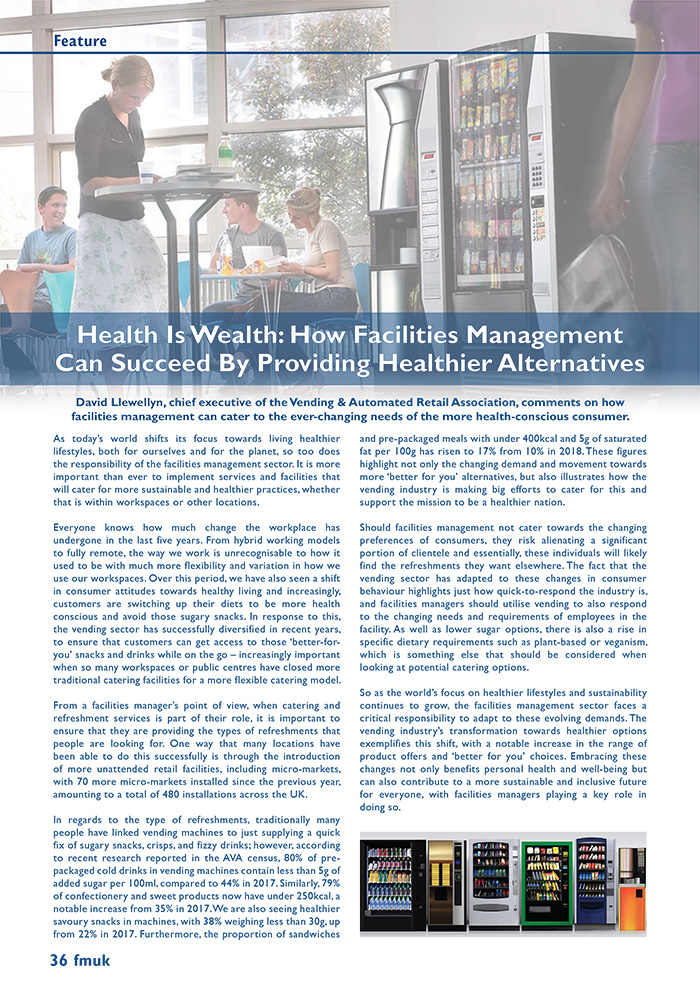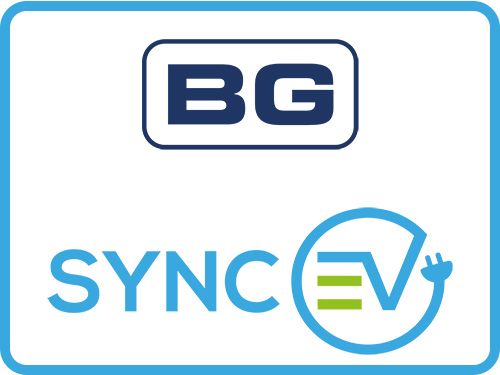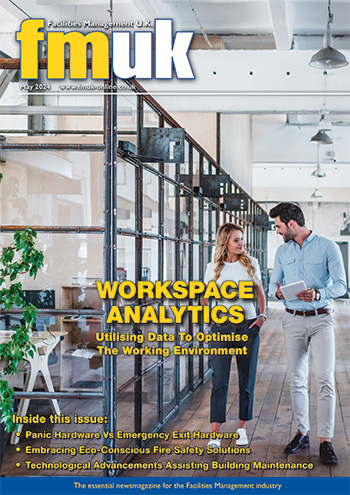Health Is Wealth: How Facilities Management Can Succeed By Providing Healthier Alternatives

As today’s world shifts its focus towards living healthier lifestyles, both for ourselves and for the planet, so too does the responsibility of the facilities management sector. It is more important than ever to implement services and facilities that will cater for more sustainable and healthier practices, whether that is within workspaces or other locations.
Everyone knows how much change the workplace has undergone in the last five years. From hybrid working models to fully remote, the way we work is unrecognisable to how it used to be with much more flexibility and variation in how we use our workspaces. Over this period, we have also seen a shift in consumer attitudes towards healthy living and increasingly, customers are switching up their diets to be more health conscious and avoid those sugary snacks. In response to this, the vending sector has successfully diversified in recent years, to ensure that customers can get access to those ‘better-for-you’ snacks and drinks while on the go – increasingly important when so many workspaces or public centres have closed more traditional catering facilities for a more flexible catering model.
From a facilities manager's point of view, when catering and refreshment services is part of their role, it is important to ensure that they are providing the types of refreshments that people are looking for. One way that many locations have been able to do this successfully is through the introduction of more unattended retail facilities, including micro-markets, with 70 more micro-markets installed since the previous year, amounting to a total of 480 installations across the UK.
In regards to the type of refreshments, traditionally many people have linked vending machines to just supplying a quick fix of sugary snacks, crisps, and fizzy drinks; however, according to recent research reported in the AVA census, 80% of pre-packaged cold drinks in vending machines contain less than 5g of added sugar per 100ml, compared to 44% in 2017. Similarly, 79% of confectionery and sweet products now have under 250kcal, a notable increase from 35% in 2017. We are also seeing healthier savoury snacks in machines, with 38% weighing less than 30g, up from 22% in 2017. Furthermore, the proportion of sandwiches and pre-packaged meals with under 400kcal and 5g of saturated fat per 100g has risen to 17% from 10% in 2018. These figures highlight not only the changing demand and movement towards more ‘better for you’ alternatives, but also illustrates how the vending industry is making big efforts to cater for this and support the mission to be a healthier nation.

Should facilities management not cater towards the changing preferences of consumers, they risk alienating a significant portion of clientele and essentially, these individuals will likely find the refreshments they want elsewhere. The fact that the vending sector has adapted to these changes in consumer behaviour highlights just how quick-to-respond the industry is, and facilities managers should utilise vending to also respond to the changing needs and requirements of employees in the facility. As well as lower sugar options, there is also a rise in specific dietary requirements such as plant-based or veganism, which is something else that should be considered when looking at potential catering options.
So as the world's focus on healthier lifestyles and sustainability continues to grow, the facilities management sector faces a critical responsibility to adapt to these evolving demands. The vending industry's transformation towards healthier options exemplifies this shift, with a notable increase in the range of product offers and ‘better for you’ choices. Embracing these changes not only benefits personal health and well-being but can also contribute to a more sustainable and inclusive future for everyone, with facilities managers playing a key role in doing so.

























































